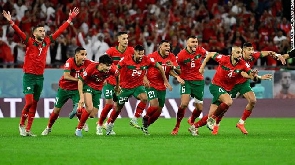GOAL’s Ed Dove explains how the Atlas Lions made history in Qatar.
A strong backline
Ahead of the Portugal game, Morocco became only the third side since 1990 to have reached the quarter-finals without an opposition player scoring against them.
They extend that record to the final four, where they follow in the footsteps of France ’98 and Italy ’06 to have progressed to the semi-finals without letting an opponent beat them…both of those two sides went on to win the title.
The duo of Romain Saiss and Nayef Aguerd were outstanding during the early stages, and the likes of Jawad El Yamiq and Achraf Dari have deputized superbly when injuries have hit.
In Achraf Hakimi and Noussair Mazraoui, they possess two of the tournament’s best full-backs, and Morocco’s strong defence has formed the basis of their magnificent run in the competition.
An excellent goalkeeper
Underpinning that backline is, of course, Yassine Bounou, who must now be considered superior to Edouard Mendy as the finest African goalkeeper on the planet today.
His save to deny Joao Felix late on was top-class, while he also made a late block to deny Cristiano Ronaldo and keep Portugal at bay.
Bono’s calm assurance and organization of the defence has been a critical asset for the Canada-born stopper.
Tactical nous
Under the leadership of Herve Renard and Vahid Halilhodzic, Morocco often displayed a more tactically sophisticated approach than their African rivals, but things have been taken to another level under Walid Regragui.
He’s got Morocco playing to their strengths, stifling and neutralising teams with excellent shape, disciplined positioning, coordinated pressing, and key use of dangermen.
Regragui is nicknamed the Moroccan Guardiola for a reason, and his approach against Spain—allowing their opponents to dominate the ball while stifling the midfield—worked to a tee.
Can he now repeat the trick against France?
The return of Ziyech
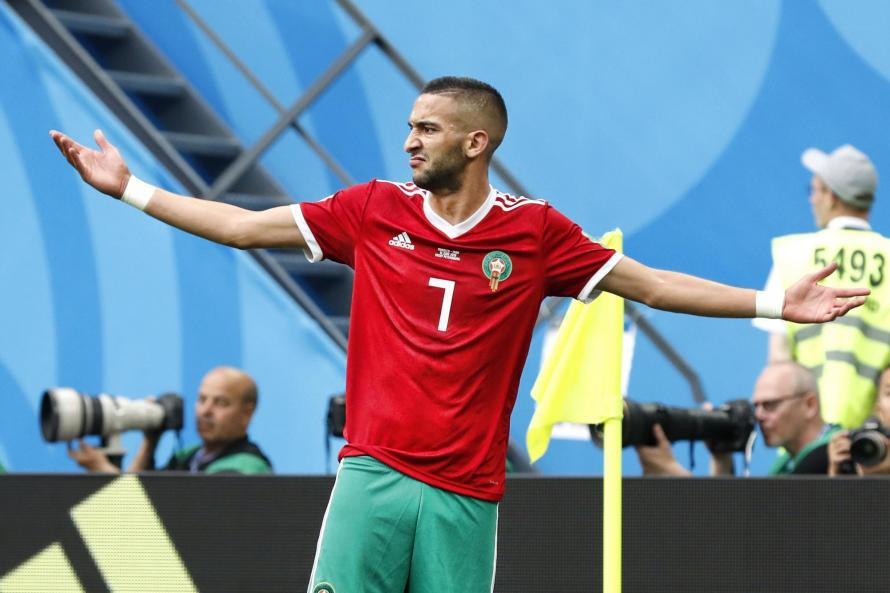
Without Hakim Ziyech at the Nations Cup, Morocco found themselves over-reliant on Sofiane Boufal, who often found himself squeezed by opposition defences and fighting a one-man battle to break through.
It worked on occasion, but Morocco still required Hakimi to dig them out of difficult situations.
With Ziyech back in the fold after the departure of Halilhodzic, Morocco now have two dangermen, with the pair enjoying an excellent understanding and able—in tandem—to give opponents something to think about.
Ziyech is averaging 1.2 goalscoring chances created per match, while he’s also ranked in the top 25 in the tournament so far for dribbles per game.
En-Nesyri finds his scoring boots
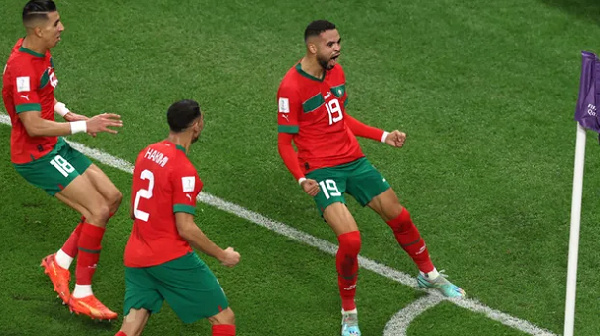
There were doubts that Youssef En-Nesyri would lead the line for Morocco at the World Cup, with the striker in the midst of an extended trough at Sevilla.
He’s not been the same player since injury misery in 2021, with the forward only making two starts in La Liga so far this term, and not scoring a single goal.
He’s already scored three at this World Cup—from three attempts on goal—with his tremendous leap against Portugal ultimately making the difference.
Attack had been a point of weakness for the Atlas Lions, but En-Nesyri now has more World Cup goals than any other Moroccan player in history, and his confidence will be high heading into the final-four showdown.
Tapping into the diaspora
Something Morocco have achieved more effectively than most other African selections is integrating and attracting players from the country’s expansive diaspora.
14 of the squad were born outside Morocco—including players born in Spain, Canada, Belgium, France and the Netherlands—with no other squad in the whole tournament boasting as many players born outside their country boundary.
The overseas players, integrated effectively, have allowed Morocco benefit from talent forged in some of Europe’s finest academies, and this isn’t something new for 2022—almost 74 percent of the 2018 World Cup squad were also born overseas.
Married to the best of the Botola
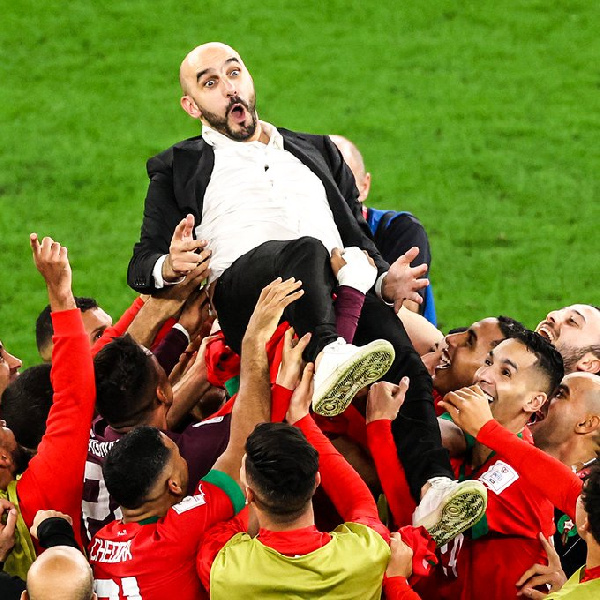
Despite the foreign influence, there’s the imprint of Morocco’s top flight, the Botola—not least of Regragui’s touch—all over this Morocco team.
The likes of Aguerd, El Yamiq and Yahia Attiyat Allah—whose superb cross set up En-Nesyri for the winner—have all spent considerable time in the Moroccan top flight, with Morocco clearly benefiting from the expansive national pool available back home.
The competitiveness of the Botola, and the investment that some of the top clubs enjoy, ensures that national team coaches can rely on talent from the local league, which has become a valuable market place for European clubs.
Home support
Like Saudi Arabia and Tunisia before them, Morocco are enjoying incredible support at their matches, with fans making Atlas Lions fixtures feel like a home game for the North Africans.
A combination of travelling supporters, ex-pats and locals keen to back an Arab side have ensured Morocco play their matches with a 12th man, while the connection between fans and players has been a joy to behold.
When the Lions have suffered setbacks—specifically injuries—they’ve been buoyed by the backing in the stadium, and it’s massively consolidated the side’s self belief.
Development and infrastructure
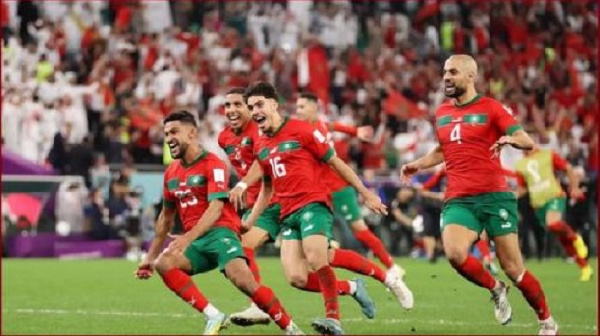
Morocco’s success has not been an isolated event, but the culmination of a decade’s worth of planning and development.
The Royal Moroccan Football Federation established a football academy, invested in grassroots football, the women’s game, and a scouting network to identify the brightest young talents.
Aguerd, En-Nesyri and Angers’ Azzedine Ounahi are academy graduates currently starring for the Lions in Qatar, with the federation’s long-term vision truly bearing fruit.
Unity
Morocco’s unity—both between players and supports and on the field—is clear to see. They demonstrate terrific team spirit and togetherness, with the spirit of self-sacrifice and mutual support running through the side.
Against Spain, they ran almost 148km—over 5km more than their opponents—and you’d be hard pressed to find a team at this tournament who are more unified than the Atlas Lions…just look at how they’ve celebrated with Regragui after each triumph!
Sports News of Sunday, 11 December 2022
Source: goal.com

